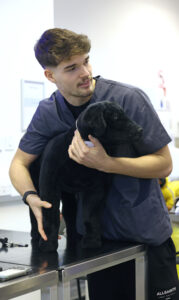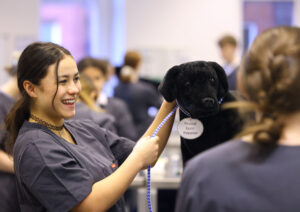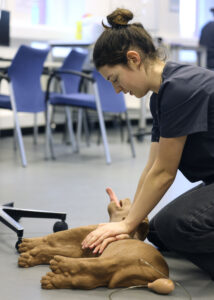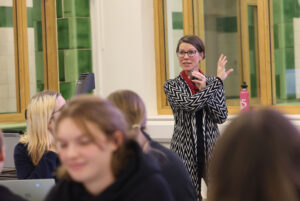How you'll learn
There is a combination of problem-based learning, didactic teaching and small-group practical classes allowing students to develop lifelong learning techniques.
The School of Health Sciences draws on over 100 years of teaching delivered by dedicated staff with real-world, practical experience. We are a hub for an extensive network of professionals, academics and researchers, so you can be confident that a degree from us will prepare you for a lifelong career in healthcare services.
Liverpool Hallmarks
We have a distinctive approach to education, the Liverpool Curriculum Framework, which focuses on research-connected teaching, active learning, and authentic assessment to ensure our students graduate as digitally fluent and confident global citizens.
The Liverpool Curriculum framework sets out our distinctive approach to education. Our teaching staff support our students to develop academic knowledge, skills, and understanding alongside our graduate attributes:
- Digital fluency
- Confidence
- Global citizenship
Our curriculum is characterised by the three Liverpool Hallmarks:
- Research-connected teaching
- Active learning
- Authentic assessment
All this is underpinned by our core value of inclusivity and commitment to providing a curriculum that is accessible to all students.







